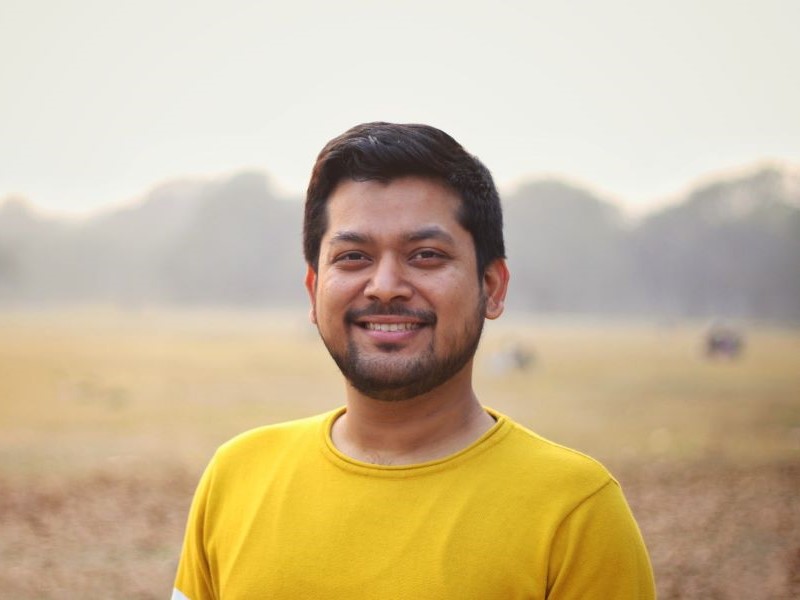 Molla Azharul Haque
Molla Azharul Haque
I discovered my ardour to work for the underprivileged section of society at a young age. I grew up witnessing the sharp inequalities in society. Social discrimination was rampant. Even though I spent most of my childhood in the city (Kolkata - formerly Calcutta) in India, I visited my parent’s village, where frequent floods exacerbated poverty and devastated the normal progress of life.
Despite studying Computer Application at bachelor’s level for a safe career in the software industry, I followed my passion and started working for the disadvantaged sections of society at the grassroots. ‘Be the change that you want to see in the world’. This quote by Mahatma Gandhi will never cease to inspire me in the pursuit of my passion. I had worked for five years and my concerns and desires about poverty reduction, social welfare, wellbeing, and social security drew me towards the Social Policy and Development programme offered by the London School of Economics and Political Science (LSE). I believed that this master’s degree would help me achieve my goal of contributing significantly to the formation and implementation of social policy.
My time at LSE was the most incredible time of my life. It taught me lessons which helped me grow personally and professionally. Writing my essays and dissertation at the LSE library, discussions during seminars, the by-lanes of Holborn and London rains will always be in my memory. The Department of Social Policy helped me more than I could ever ask for, especially my academic advisor Dr Armine Ishkanian, mentor Dr Sunil Kumar, and Professor Hartley Dean. LSE instilled in me the confidence that I can be an ‘agent of change’ in the development sector.
LSE provided me with the cross-culture learning platform that deepened my understanding of the core concepts of the theory and implementation of social policy in developing countries.
My work and my studies had given me an opportunity to live in different places but kept me away from my parents, hence I took a break and decided to be with them after I graduated in 2018. The break was short-lived as I started working from January 2019 with the government of my home state on projects related to policy development.
While at LSE, I was drawn towards working for refugees and conflict mitigation. Hence, I did not hesitate when I got an opportunity to work in Afghanistan. I have been working in Afghanistan since July 2019. Presently I am working as the Country Programs Manager at Aschiana Organisation in Kabul, and my work is to look after an array of programs in some of the most remote and hard to reach provinces in Afghanistan. My key responsibilities are strengthening the capacity of community-based institutions for peace building and reconciliation, and providing education to refugees, returnees and internally displaced people (IDP) with special focus on children and women. I work on projects addressing child rights violations, prevention of child labour and creation of livelihood opportunities in IDP and refugee camps. Apart from implementing protection, education in emergency and emergency responses projects, I assist in building safe spaces and protective environment for vulnerable children and youth, and help in preventing exploitation, violence and abuse.
Working in a war-torn country like Afghanistan has provided me with insights of internal and external dynamics of a conflict zone. This has encouraged me to engage for the cause of refugees and conflict mitigation more than ever before. I want to continue contributing meaningfully.
My career goal is to be in an advisory position of social policy advocacy and formation, from where I can apply my training in Social Policy from LSE, and skills related to social development of communities in distress. My learnings working for the refugees and IDPs of the camps of Afghanistan continues to equip me for a role of expert analyst who can engage directly with all parties to a conflict. It also equips me to share multiple perspectives and propose practical policy options for a holistic and cross-cutting policy framework that can be put to practice for sustainable social development during what I like to call ‘pre-peace’ (conflict) phase in conflict ridden regions around the worlds. I could not have this vision without the opportunity of being a part of LSE. I thank every member of LSE and the Department of Social Policy who has directly and indirectly contributed to my professional and life-long learnings for the pursuit of a better and peaceful world.
Now and forever ‘rerum cognoscere causas’